京都でも開催します。
2014年6月5日(木)18:30~20:30@ひと・まち交流館 京都
http://www.geocities.jp/fujiwara_toshihide/50/20140605.html
--
メコン・ウォッチの満田さんから。
---------------------
ODAで支援しているビルマ(ミャンマー)のティラワ経済特区建設事業で、土地や生計を失うなど被害を受けている住民が来日します。
オールジャパンで進められているこの事業の問題点を通じて、ビルマのODAにおける人権問題を考えます。
東京・京都でセミナーを開催しますので、ぜひご参加ください。
----------------------------------------
【セミナー】ビルマ(ミャンマー)における日本の援助と人権
~住民の報告から日本の対応を問い直す~
―ティラワ経済特別区開発の立ち退き問題―
http://www.mekongwatch.org/events/lecture01/201406Burma.html
----------------------------------------
【?東京・院内集会】 2014年6月3日(火)13:00~15:00@衆議院第一議員会館
【?関西】 2014年6月5日(木)18:30~20:30@ひと・まち交流館 京都
【?東京】 2014年6月7日(土)14:30~16:30@法政大学
ビルマ(ミャンマー)の最大都市ラングーン(ヤンゴン)近郊で、日本が官民を挙げて進めている「ティラワ経済特別区開発事業」(約2,400ヘクタール)では、先行開発区域(フェーズ1、約400ha)で68家族(約300人)がすでに移転を強いられました。
残り2,000ヘクタールの開発では、さらに1,000家族以上(約4,500人)が移転を迫られることになっています。
これまで現地では、同事業フェーズ1の開発に伴い、生計手段を失うなど、以前より厳しい生活を余儀なくされている住民グループが、問題の解決を求めてきました。
フェーズ1で海外投融資(ODAによる民間支援)を行なう国際協力機構(JICA)に対しても、何度もレターを提出し、JICAガイドラインに則った移転・補償措置をとるよう訴えてきました。
しかし、JICAはこうした声に真摯に耳を傾けていません。
(参照:http://www.mekongwatch.org/resource/news/20140428_02.html)
今回のセミナーでは、現地から同事業の影響を受けている住民と彼らを支援している現地NGOスタッフを迎え、現場の状況と懸念、また、住民によるこれまでの取り組みなどについて報告してもらいます。
これ以上、住民の生活状況が悪化することのないよう、日本の対応における課題を検証するとともに、今後も増加が見込まれるビルマへの日本の援助・投資の在り方を考えます。ふるってご参加ください。
【3つのセミナーに共通】
内容:(予定)
・ティラワ経済特別区開発事業の概要と日本の関わり
・ティラワ経済特別区開発事業の移転・補償問題の経緯
・ティラワ経済特別区開発事業に関する現地報告(逐次訳あり)
1)移転地の状況と課題
2)移転・補償合意プロセスの状況と課題
3)住民によるこれまでの取り組みと今後の懸念
・JICA環境社会配慮ガイドラインと異議申し立て制度について
・質疑応答/オープン・フォーラム
お問い合わせ
特定非営利活動法人メコン・ウォッチ
Tel: 03-3832-5034 Fax: 03-3832-5039
Email: info@mekongwatch.org
★カンパのお願い
ビルマからの被害住民の招聘・滞在費等をカバーするため、カンパをお願いします!
お振込先はこちら。
三井住友銀行上野支店
口座番号 普通8167448
口座名 特定非営利活動法人 メコンウォッチ
フリガナ:トクテイヒエリカツドウホウジン メコンウォッチ
ゆうちょ銀行
口座番号 10080-82667871
加入者名 トクヒ メコン・ウォッチ
(他行からのお振り込み)
店名 00八(ゼロゼロハチ)
店番 008
口座番号 普通82667871
【東京・院内集会】--------------------------
日時
2014年6月3日(火)13:00~15:00
※会場が「議員会館」ですが、一般の方もご参加いただけます。
入館証を12:30からお配りしますので、建物を入ってすぐの待合スペースでお待ちください。
会場:衆議院第一議員会館 地下1階 第3会議室
(東京都千代田区永田町一丁目7番1号)
(地図) http://www.shugiin.go.jp/internet/itdb_annai.nsf/html/statics/kokkaimap.htm
アクセス
東京メトロ丸ノ内線、千代田線 「国会議事堂前駅」 3番出口 徒歩5分
東京メトロ有楽町線、半蔵門線、南北線 「永田町駅」 1番出口 徒歩5分
定員 60名 参加費:無料
申込み:以下のフォームからお申込みください。
http://goo.gl/4mnR2v
主催:メコン・ウォッチ、ビルマ市民フォーラム
協力:ミャンマーの民主化を支援する議員連盟、(社)アムネスティインターナショナル日本、国際環境NGO FoE Japan、ビルマ情報ネットワーク (BurmaInfo)
【関西】--------------------------チラシ(PDF)
日時:2014年6月5日(木)18:30~20:30
会場:ひと・まち交流館 京都 第4、5会議室
(京都市下京区 河原町通五条下る東側)
(地図) http://www.hitomachi-kyoto.jp/access.html
アクセス
京阪電車「清水五条」 徒歩8分
地下鉄烏丸線「五条」 徒歩10分
定員:180名 資料代:500円
申込み:以下のフォームからお申込みください。
http://goo.gl/4mnR2v
共催:ODA改革ネットワーク・関西、メコン・ウォッチ
協力:アーユス仏教国際協力ネットワーク、国際環境NGO FoE Japan、
日本ビルマ救援センター、ヒューライツ大阪、
ビルマ情報ネットワーク (BurmaInfo)
【?東京】--------------------------
日時:2014年6月7日(土)14:30~16:30
会場:法政大学市ヶ谷キャンパス 市ヶ谷田町校舎 マルチメディアホール
(東京都新宿区市谷田町2-33)
(地図) http://www.hosei.ac.jp/campus/ichigaya/ichigaya.html
アクセス:地下鉄有楽町線、南北線 【市ヶ谷駅】 5番出口 徒歩5分
JR総武線 【市ヶ谷駅】 徒歩10分
定員:200名
資料代:無料
申込み:以下のフォームからお申込みください。
http://goo.gl/4mnR2v
共催:法政大学国際文化学部、メコン・ウォッチ
協力:(社)アムネスティインターナショナル日本、アーユス仏教国際協力ネットワーク、 国際環境NGO FoE Japan、ビルマ情報ネットワーク (BurmaInfo)
よろしければ、下のマークをクリックして!

よろしければ、もう一回!

2014年6月5日(木)18:30~20:30@ひと・まち交流館 京都
http://www.geocities.jp/fujiwara_toshihide/50/20140605.html
--
メコン・ウォッチの満田さんから。
---------------------
ODAで支援しているビルマ(ミャンマー)のティラワ経済特区建設事業で、土地や生計を失うなど被害を受けている住民が来日します。
オールジャパンで進められているこの事業の問題点を通じて、ビルマのODAにおける人権問題を考えます。
東京・京都でセミナーを開催しますので、ぜひご参加ください。
----------------------------------------
【セミナー】ビルマ(ミャンマー)における日本の援助と人権
~住民の報告から日本の対応を問い直す~
―ティラワ経済特別区開発の立ち退き問題―
http://www.mekongwatch.org/events/lecture01/201406Burma.html
----------------------------------------
【?東京・院内集会】 2014年6月3日(火)13:00~15:00@衆議院第一議員会館
【?関西】 2014年6月5日(木)18:30~20:30@ひと・まち交流館 京都
【?東京】 2014年6月7日(土)14:30~16:30@法政大学
ビルマ(ミャンマー)の最大都市ラングーン(ヤンゴン)近郊で、日本が官民を挙げて進めている「ティラワ経済特別区開発事業」(約2,400ヘクタール)では、先行開発区域(フェーズ1、約400ha)で68家族(約300人)がすでに移転を強いられました。
残り2,000ヘクタールの開発では、さらに1,000家族以上(約4,500人)が移転を迫られることになっています。
これまで現地では、同事業フェーズ1の開発に伴い、生計手段を失うなど、以前より厳しい生活を余儀なくされている住民グループが、問題の解決を求めてきました。
フェーズ1で海外投融資(ODAによる民間支援)を行なう国際協力機構(JICA)に対しても、何度もレターを提出し、JICAガイドラインに則った移転・補償措置をとるよう訴えてきました。
しかし、JICAはこうした声に真摯に耳を傾けていません。
(参照:http://www.mekongwatch.org/resource/news/20140428_02.html)
今回のセミナーでは、現地から同事業の影響を受けている住民と彼らを支援している現地NGOスタッフを迎え、現場の状況と懸念、また、住民によるこれまでの取り組みなどについて報告してもらいます。
これ以上、住民の生活状況が悪化することのないよう、日本の対応における課題を検証するとともに、今後も増加が見込まれるビルマへの日本の援助・投資の在り方を考えます。ふるってご参加ください。
【3つのセミナーに共通】
内容:(予定)
・ティラワ経済特別区開発事業の概要と日本の関わり
・ティラワ経済特別区開発事業の移転・補償問題の経緯
・ティラワ経済特別区開発事業に関する現地報告(逐次訳あり)
1)移転地の状況と課題
2)移転・補償合意プロセスの状況と課題
3)住民によるこれまでの取り組みと今後の懸念
・JICA環境社会配慮ガイドラインと異議申し立て制度について
・質疑応答/オープン・フォーラム
お問い合わせ
特定非営利活動法人メコン・ウォッチ
Tel: 03-3832-5034 Fax: 03-3832-5039
Email: info@mekongwatch.org
★カンパのお願い
ビルマからの被害住民の招聘・滞在費等をカバーするため、カンパをお願いします!
お振込先はこちら。
三井住友銀行上野支店
口座番号 普通8167448
口座名 特定非営利活動法人 メコンウォッチ
フリガナ:トクテイヒエリカツドウホウジン メコンウォッチ
ゆうちょ銀行
口座番号 10080-82667871
加入者名 トクヒ メコン・ウォッチ
(他行からのお振り込み)
店名 00八(ゼロゼロハチ)
店番 008
口座番号 普通82667871
【東京・院内集会】--------------------------
日時
2014年6月3日(火)13:00~15:00
※会場が「議員会館」ですが、一般の方もご参加いただけます。
入館証を12:30からお配りしますので、建物を入ってすぐの待合スペースでお待ちください。
会場:衆議院第一議員会館 地下1階 第3会議室
(東京都千代田区永田町一丁目7番1号)
(地図) http://www.shugiin.go.jp/internet/itdb_annai.nsf/html/statics/kokkaimap.htm
アクセス
東京メトロ丸ノ内線、千代田線 「国会議事堂前駅」 3番出口 徒歩5分
東京メトロ有楽町線、半蔵門線、南北線 「永田町駅」 1番出口 徒歩5分
定員 60名 参加費:無料
申込み:以下のフォームからお申込みください。
http://goo.gl/4mnR2v
主催:メコン・ウォッチ、ビルマ市民フォーラム
協力:ミャンマーの民主化を支援する議員連盟、(社)アムネスティインターナショナル日本、国際環境NGO FoE Japan、ビルマ情報ネットワーク (BurmaInfo)
【関西】--------------------------チラシ(PDF)
日時:2014年6月5日(木)18:30~20:30
会場:ひと・まち交流館 京都 第4、5会議室
(京都市下京区 河原町通五条下る東側)
(地図) http://www.hitomachi-kyoto.jp/access.html
アクセス
京阪電車「清水五条」 徒歩8分
地下鉄烏丸線「五条」 徒歩10分
定員:180名 資料代:500円
申込み:以下のフォームからお申込みください。
http://goo.gl/4mnR2v
共催:ODA改革ネットワーク・関西、メコン・ウォッチ
協力:アーユス仏教国際協力ネットワーク、国際環境NGO FoE Japan、
日本ビルマ救援センター、ヒューライツ大阪、
ビルマ情報ネットワーク (BurmaInfo)
【?東京】--------------------------
日時:2014年6月7日(土)14:30~16:30
会場:法政大学市ヶ谷キャンパス 市ヶ谷田町校舎 マルチメディアホール
(東京都新宿区市谷田町2-33)
(地図) http://www.hosei.ac.jp/campus/ichigaya/ichigaya.html
アクセス:地下鉄有楽町線、南北線 【市ヶ谷駅】 5番出口 徒歩5分
JR総武線 【市ヶ谷駅】 徒歩10分
定員:200名
資料代:無料
申込み:以下のフォームからお申込みください。
http://goo.gl/4mnR2v
共催:法政大学国際文化学部、メコン・ウォッチ
協力:(社)アムネスティインターナショナル日本、アーユス仏教国際協力ネットワーク、 国際環境NGO FoE Japan、ビルマ情報ネットワーク (BurmaInfo)
よろしければ、下のマークをクリックして!
よろしければ、もう一回!











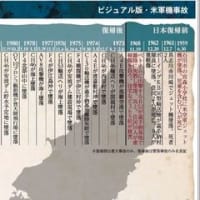
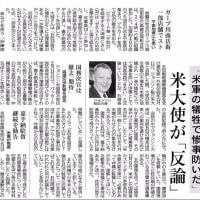
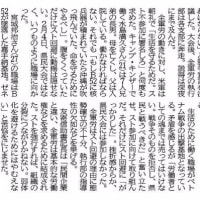
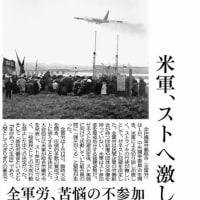
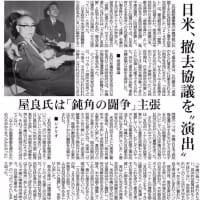
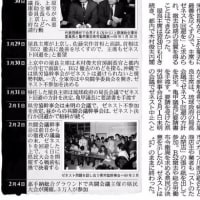
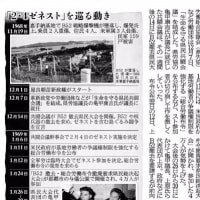
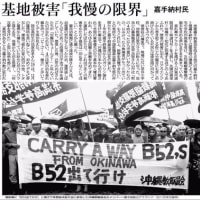
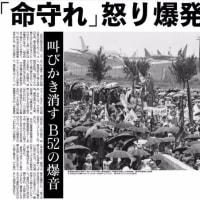
要するに 日本は水力発電建設を請け負ったが
その地区はカレン在住地区であり 日常的に虐殺・レイプ・強制労働が行われているから 実際字の建設前に調査すべきであるという
Japan should investigate abuses at Burma hydropower project before considering new support printButton.png ¬ emailButton.png ¬
For Immediate Release
2 November 2011
Burma Rivers Network (BRN) together with the Karenni Development Research Group (KDRG), representing dam-affected communities in Burma, urges the Japanese Government to investigate abuses linked to Lawpita (Baluchaung) No. 2 hydropower plant, Burma’s first major hydropower project in Karenni State, before considering any new support. The Lawpita project was funded by a Japanese reparations payment after World War II.
On October 21, the Japanese Ministry of Foreign Affairs announced that it is considering providing official development assistance (ODA) to the Burmese government to rehabilitate the Lawpita No.2 hydropower plant, in response to what it views as the Burmese government’s progress toward democratization.
Over 12,000 people were forced from their homes by the Lawpita project. Thousands of Burma Army soldiers came in to secure the project, resulting in abuses against the local population including forced labor, sexual violence, and extrajudicial killings. Water use was prioritized for the power plants, causing water shortages and destructive floods that destroyed crops. Today there are an estimated 18,000 landmines surrounding the power plants and pylons. Despite these costs, still today eighty percent of the local population has no access to electricity, as most is sent to central Burma.
After heavy rains in September 2011, the military released water from the Lawpita project dam without warning, causing destructive flooding in many townships downstream and demonstrating the mismanagement of the project.
“Until today, Lawpita is still surrounded by landmines and local villagers are forced to guard the electric lines” said Khu Thaw Reh, the coordinator of KDRG. “The Japanese need to investigate the ongoing human rights abuses at the project site before considering further grants to Burma’s military-backed government.”
Japan is among several countries considering renewal of investments and aid to Burma in recent months despite ongoing civil war and abuses. Armed conflict continues near dam projects in Shan, Kachin, Karenni, and Karen states as ethnic peoples struggle for political rights.
“Now is not an appropriate time for large scale investments in Burma” said Sai Sai of the Burma Rivers Network. “Not only are these projects failing to benefit local people but they are leading to abuses.”
http://www.washingtonpost.com/opinions/human-rights-abuses-are-rampant-in-burma/2013/11/15/d0879516-3c35-11e3-b7ba-503fb5822c3e_print.html
http://www.washingtonpost.com/opinions/human-rights-abuses-are-rampant-in-burma/2013/11/15/d0879516-3c35-11e3-b7ba-503fb5822c3e_print.html
http://www.guardian.co.uk/commentisfree/2013/apr/23/burma-eu-too-quick-lift-sanctions/print
こうした エスニック無視の選挙は正当化できない
http://www.theguardian.com/world/2014/apr/23/burma-elections-tensions-suu-kyi/print
http://www.guardian.co.uk/commentisfree/2013/jul/14/leaders-stop-genocide-rohingya-burma/printthen promised they would
安倍はシンガポールで「法の支配」を提唱した
ならば 何故このような国に率先して援助するのか
外交で世界をリードすると大見得をきった
1週間前のアドレスである
しかし 既に米国はビルマの民族間暴力と外国援助ぐるグループに対する暴力に警告を発している
しかしそういう一方で 投資援助は再開した
軍独裁下から継続的に投資やインフラ整備を行ってきたには中国とタイである 彼らは 軍上層部に金品を渡す渡して 世界で二番目に大きい4熱帯雨林の伐採をしたり 地元の反対を 軍とアウンサンスーティ^の「説得」で押し切ってダム建設を強行した
またタイは 国内の環境基準に合わない「汚い産業を
ビルマに移転した かって日本のODAが丸紅とか総合商社とグルになって 東南アジアの自然を破壊した
また日本は同じ事を繰り返すだろう
http://www.theguardian.com/world/2014/apr/23/us-burma-ethnic-violence-warning/print
虐殺ーゴールドラッシュが人権を圧倒する」
という記事で あらゆる投資と援助が民族差別と虐殺にりと利用されているかという事実を暴露している
- have received only passing and dispassionate coverage in most media. What they actually warrant is widespread outrage and decisive efforts to bring further human rights abuses to an immediate halt.
“Burmese helicopter set fire to three boats carrying nearly 50 Muslim Rohingyas fleeing sectarian violence in western Burma in an attack that is believed to have killed everyone on board,” reported Radio Free Europe on July 12.
Why would anyone take such fatal risks? Refugees are attempting to escape imminent death, torture or arrest at the hands of the Ethnic Buddhist Rakhine majority, which has the full support of the Burmese government.
The relatively little media interest in Burma’s ‘ethnic clashes’ is by no means an indication of the significance of the story. The recent flaring of violence followed the raping and killing of a Rhakine woman on May 28, allegedly by three Rohingya men. The incident ushered a rare movement of unity between many sectors of Burmese society, including the government, security forces and so-called pro-democracy activists and groups. The first order of business was the beating to death of ten innocent Muslims. The victims, who were dragged out of a bus and attacked by a mob of 300 strong Buddhist Rhakine, were not even Rohingyas, according to the Bangkok Post (June 22). Not all Muslims in Burma are from the Rohingya ethnic group. Some are descendants of Indian immigrants, some have Chinese ancestry, and some even have early Arab and Persian origins. Burma is a country with a population of an estimated 60 million, only 4 percent of whom are Muslim.
Regardless of numbers, the abuses are widespread and rioters are facing little or no repercussions for their actions. “The Rohingyas…face some of the worst discrimination in the world,” reported Reuters on July 4, citing rights groups. UK-based Equal Rights Trust indicated that the recent violence is not merely due to ethnic clashes, but actually involves active government participation. “From June 16 onwards, the military became more actively involved in committing acts of violence and other human rights abuses against the Rohingya including killings and mass-scale arrests of Rohingya men and boys in North Rakhine State.”
The ‘pro-democracy’ Burmese groups and individuals celebrated by Western governments for objecting to the country’s military junta are also taking part in the war against minorities. Writing in the Sydney Morning Herald on July 8, Hanna Hindstrom reported that one pro-democracy group stated on Twitter that “[t]he so-called Rohingya are liars,” while another social media user said, “We must kill all the kalar.” Kalar is a racist slur applied to dark-skinned people from the Indian subcontinent
Politically, Burma has a poor reputation. A protracted civil war has ravaged the country shortly after its independence from Britain in 1948. The colonial era was exceptionally destructive as the country was used as a battleground for great powers. Many Burmese were slaughtered in a situation that was not of their making. As foreign powers divided the country according to their own purposes, an ensuing civil war was almost predictable. It supposedly ended when a military junta took over from 1962 to 2011, but many of the underlying problems remained unresolved.
Per western media coverage, Burma is defined by a few ‘iconic’ individuals’ quest for democracy, notwithstanding opposition leader Aung San Suu Kyi. Since an election last year brought a civilian government to power, we have been led to believe that a happy ending is now in the making. “Burma opposition leader Aung San Suu Kyi made her historic parliamentary debut on Monday (July 9), marking a new phase in her near quarter century struggle to bring democracy to her army-dominated homeland,” reported the British Telegraph.
But aside from mere ‘concerns’ over the ethnic violence, Aung San Suu Kyi is staying on the fence - as if the slaughter of the country’s ‘dark-skinned Indians’ is not as urgent as having a parliamentary representation for her party, the National League for Democracy in Burma. Secretary General of the Organization of Islamic Cooperation (OIC), Ekmeleddin Ihsanoglu called on ‘The Lady’ to do something, anything. “As a Nobel Peace Laureate, we are confident that the first step of your journey towards ensuring peace in the world would start from your own doorstep and that you would play a positive role in bringing an end to the violence that has afflicted Arakan State,” he wrote. However, “Aung San Suu Kyi's National League for Democracy continues to carefully sidestep the hot-button issue,” according to Foreign Policy.
The violent targeting of Burmese minorities arrived at an interesting time for the US and Britain. The